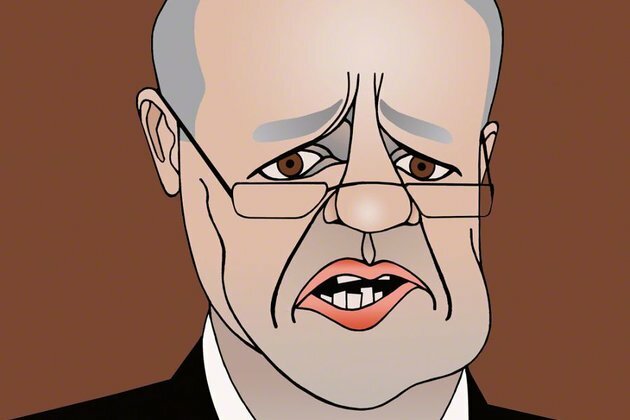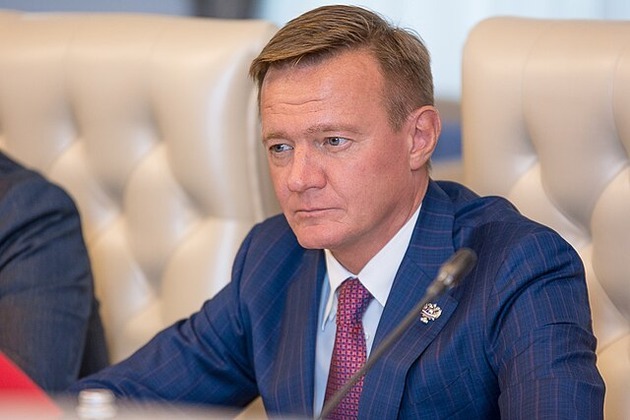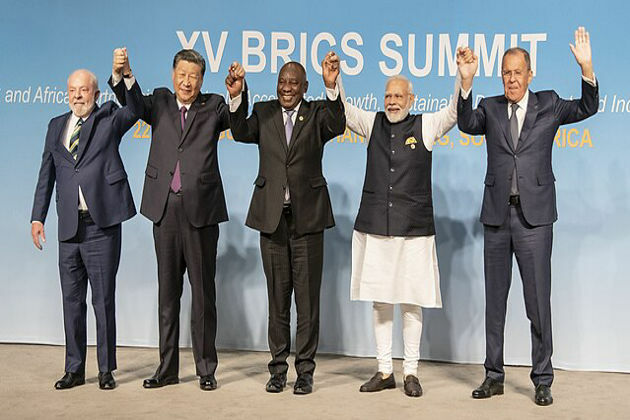Morrison's COVID-19 Commission: Industry policy in reverse
Independent Australia
10 Aug 2020, 15:22 GMT+10

The Morrison Government is using industry policy in a reverse and perverse fashion that is best understood as a form of predation, writes Dr Tim Thornton.
THE MORRISON GOVERNMENT is set to pursue a "gas-fired economic recovery" of the Australian economy.
Its controversially constructed and increasingly secretive COVID-19 Recovery Commission is a key part of this strategy. For example, a leaked draft report by a manufacturing taskforce appended to the Commission recommended that taxpayers provide massive support to build gas and fossil fuel infrastructure.
Gas stench permeates the COVID-19 Commission
What is going on here? Most countries offer assistance to certain industries. The various measures are diverse in nature and can range from tariff protection and subsidies through to more "light touch" approaches where the government acts as a facilitator to largely private sector and market-driven initiatives.
The spectrum of responses can be grouped under the label of "industry policy". Some uses of industry policy can amount to a type of favouritism, whereby certain industries get assistance and other industries get nothing. Indeed, neglected industries may be deliberately or inadvertently damaged in order to promote the growth of more favoured industries.
Industry policy is necessarily controversial. Unsurprisingly, some economists argue that it is unjust, risky and inappropriate for the government to play favourites. It is not hard to appreciate the merits of such arguments.
However, a strategic case can be made for assisting certain industries when they meet three criteria:
if global demand for that industry's outputs is likely to increase strongly over time; if an industry requires initial assistance in order to become globally competitive; and when the social, political or environmental spillover benefits from the industry are strongly positive.
The post-WW2 development of Japan and South Korea and Taiwan exemplify the intelligent and largely successful use of such industry policy. Their strategic approach in developing comparative advantage in particular industries is, on the whole, a case study of policymaking success.
Relative to these East Asian countries, Australia's use of industry policy has been either timid, inept and, at times, troubling. The most obvious problem is that we have simply singled out the wrong industries for support.
Transparency called for in fossil fuel-stacked COVID-19 Commission
The gas sector is a case in point.
Indeed, it fails to meet any of the three criteria that warrant the use of any type of industry policy given that:
the rapid drop decline of gas is eclipsed only by the rapid decline of coal - fossil fuel stocks have been the worst performers in the Australian stock market over the last decade and globally, there has been $12 trillion of disinvestment from fossil fuels since 2013; the fossil fuel sector is already fully developed, capitalised and competitive against rival countries and is in no way an "infant industry"; and the net social, political and environmental spillovers from the gas industry are strongly negative.
There are appropriate targets for industry policy in Australia. For example, the renewables industry ticks all three boxes: strong global demand; an industry that requires initial assistance in order to reach its potential; and an industry that offers social, political and environmental spillovers that are strongly positive.
This is all made entirely clear in Ross Garnaut's recent book Superpower: Australia's Low Energy Future, where he makes a strong case for a modest form of industry policy that is essentially pro-market and pro-private sector. Indeed, Garnaut's particular formulation of industry policy gives few, if any, other industries a valid basis for complaint.
The obvious question in all this is why is our government doing industry policy in reverse? That is, why are we protecting a dying industry and neglecting and damaging industries that could potentially have a strong future?
The madness of a gas-led recovery and what you can do about it
In reflecting on this question, it is worth remembering that fossil fuels are also the primary driver of climate change, so it should be added that the dying fossil fuels industry could, in its death throes, kill most other industries. What long term future do industries like agriculture, tourism and international education have in a country increasingly afflicted by drought, bushfires, smoke-filled air, floods and extreme heatwaves?
We might best understand our current predicament via recourse to what the institutional economist James Galbraith terms a "predator state". In such circumstances, one group feasts on what is on offer in a decaying system that once served broader interests. The predatory class may be opposed by others who also possess wealth, power and influence. However, a carefully constructed network built on political donations, ideological affinity and personal relationships produces an influence over the government that results in the interests of the predatory class prevailing.
The Morrison Government conforms to the template of a predator state, notwithstanding the likelihood that many of its members may be incapable of ever recognising this reality. Such a parlous situation can be ill afforded at this most delicate juncture in the Earth's history. Nonetheless, it is to be emphasised that the situation is also inherently fragile, given that in a democracy there is always the means to produce outcomes that reflect the general interest, though, of course, the majority needs to be aware and engaged enough for this means of change to work.
Dr Tim Thornton is a Senior Research Fellow at the Economics in Context Initiative at Boston University and Director of the School of Political Economy in Melbourne.
Related Articles'Game of mates' being played in COVID-19 CommissionThe madness of a gas-led recovery and what you can do about itCoalition's COVID-19 Commission: Another reason for a Federal ICAC Now!
 Share
Share
 Tweet
Tweet
 Share
Share
 Flip
Flip
 Email
Email
Watch latest videos
Subscribe and Follow
Get a daily dose of Pakistan Telegraph news through our daily email, its complimentary and keeps you fully up to date with world and business news as well.
News RELEASES
Publish news of your business, community or sports group, personnel appointments, major event and more by submitting a news release to Pakistan Telegraph.
More InformationInternational
SectionTravelers can now keep shoes on at TSA checkpoints
WASHINGTON, D.C.: Travelers at U.S. airports will no longer need to remove their shoes during security screenings, Department of Homeland...
Rubio impersonator used AI to reach officials via Signal: cable
WASHINGTON, D.C.: An elaborate impersonation scheme involving artificial intelligence targeted senior U.S. and foreign officials in...
Warsaw responds to migration pressure with new border controls
SLUBICE, Poland: Poland reinstated border controls with Germany and Lithuania on July 7, following Germany's earlier reintroduction...
Deadly July 4 flash floods renew alarm over NWS staffing shortages
WASHINGTON, D.C.: After months of warnings from former federal officials and weather experts, the deadly flash floods that struck the...
Putin fires transport chief, later found dead in suspected suicide
MOSCOW, Russia: Just hours after his sudden dismissal by President Vladimir Putin, Russia's former transport minister, Roman Starovoit,...
Thousands gather in Himalayas as Dalai Lama celebrates 90th birthday
DHARAMSHALA, India: The Dalai Lama turned 90 on July 6, celebrated by thousands of followers in the Himalayan town of Dharamshala,...
Business
SectionGold ETF inflows hit 5-year high as tariffs drive safe-haven bets
LONDON, U.K.: Physically backed gold exchange-traded funds recorded their most significant semi-annual inflow since the first half...
PwC: Copper shortages may disrupt 32 percent of chip output by 2035
AMSTERDAM, Netherlands: Some 32 percent of global semiconductor production could face climate change-related copper supply disruptions...
U.S. stocks recover after Trump-tariffs-induced slump
NEW YORK, New York - U.S. stocks rebounded Tuesday with all the major indices gaining ground. Markets in the UK, Europe and Canada...
Stocks slide as Trump unveils 25% tariffs on Japan, S. Korea
NEW YORK CITY, New York: Financial markets kicked off the week on a cautious note as President Donald Trump rolled out a fresh round...
BRICS issues rebuke on trade and Iran, avoids direct US criticism
RIO DE JANEIRO, Brazil: At a two-day summit over the weekend, the BRICS bloc of emerging economies issued a joint declaration condemning...
BP appoints ex-Shell finance chief Simon Henry to board
LONDON, U.K.: This week, BP appointed Simon Henry, former Shell finance chief, to its board as a non-executive director effective September...













